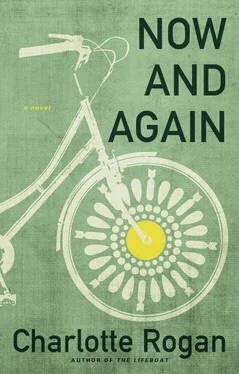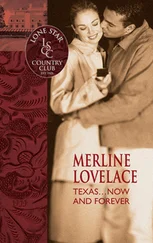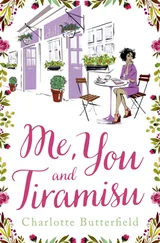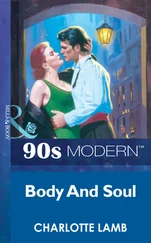“I’m going to post something,” said Danny, who had put aside the television pilot and was working on an epic poem. “Think of the Odyssey —if it was written by Eminem.”
Kelly was still working out the angles of the site. “How do we know if the stories are true?” he asked.
“What’s true?” countered Danny. He stood up in the open space between the desks and read from his notepad:
News, news, fact or ruse,
Raise the flag and light the fuse
“I’m not sure the personal stories need to be true,” said the captain. “The idea is for soldiers to share their experiences. It’s how they see what happened that counts.”
“The documents don’t need to be true either,” said Le Roy. “They only need to be authentic, so I’m studying up on that.”
At a pause in the conversation, Danny continued reading.
“The war will be over before it starts,”
Goes the official pronouncement
(While PhDs using proven marketing techniques send
Catchy slogans into the ether)
And military contractors ramp up production,
Turning depleted uranium and enlisted men
Into dollars and cents.
Coincidentally, it is the Congressional naysayers
Who receive anthrax-laced letters in the mail.
Meanwhile, by the waters of Babylon,
A car laden with explosives
Approaches a convoy on a lonely desert road.
A soldier makes a lucky shot, and…
The train went through, blaring its whistle at the crossing and startling even Kelly. “Man, that sounded like incoming artillery fire,” he said.
When the glass had settled back into its wooden frames, Danny climbed out from behind the couch and said, “Anyway, I figured that since it’s impossible to forget, maybe I should be trying to remember.”
“You didn’t know about the grenade,” said Penn. “There’s no way you could have known.”
“That’s the point,” said Danny. “What do any of us know — me or anybody else? We run around with guns and battle plans and grandiose statements about liberation, but we might as well be kids running around in the dark. So now we post the stories and we write the poems and we dig through the official record for shards of truth or evidence of wrongdoing — and what? It doesn’t change anything we did. The damage is done.”
“The blast was going to kill him anyway,” said Kelly. “Even if you hadn’t stopped the truck.”
“He might have had a chance,” said Danny. “He might have had a fighting chance.”
“He had zero chance,” said Kelly. “Not even one in a million.”
“And those shards of truth might change things,” said the captain. “Not the past, but the future.”
“What’s true?” Danny asked again.
“I’m thinking it’s all of the personal narratives together,” said the captain, “each of them a tiny pixel in the bigger picture of what is what. And then the documents tether the narratives into some kind of objective framework. They allow people to look behind the personal accounts and the news stories to see if what we’re being told is true.”
Le Roy was still going on about authentication. “I’ve got a good guy working with me on that, but he tells me we need some kind of anonymous drop box. People can’t just email us top-secret documents. And we don’t want to know who the leakers are — we need a system where they can’t be traced.”
Kelly noticed how everyone occupied his own boxcar of thought: The captain had some theory of journalism in mind. Le Roy was obsessed with the mechanics of collecting and disseminating information. Danny was interested in stories as catharsis and art. Kelly wasn’t sure yet what he was interested in, but money was never far from his mind. “Speaking of stories,” he said, but just then the single mother from down the block arrived with the dinner she had cooked for them, and Kelly didn’t finish what he was going to say.
“You boys are in for a treat,” she said, putting a pan of lasagna on the table. “Mmm-mm. I outdid myself today!”
The first document to go up on the site was Penn’s old email to himself describing what had happened with the convoy and the IED, juxtaposed to the official version of events.
“Are you sure you want that up there?” asked Kelly.
“Yeah,” said the captain. “I do.”
“Kind of like a confession?” asked Kelly.
“Yeah,” said the captain, “kind of like that.”
The captain was headed out on his evening patrol, so Kelly pulled on his jacket and followed him down the walk, kicking at the hydrangea heads, which had turned brittle and brown as the season deepened. He was surprised to see that night had fallen and the cloud cover had given way to a clear blackness that dissolved at the edges where lights from the city center fought back the dark. “I was thinking,” he said. “Could be it’s better to leave the ghosts alone.”
“How does that help?” asked the captain. “Ghosts are creatures of darkness. They might not ever disappear completely, but they lose some of their power in the light.”
They walked across the tracks and turned down toward the river, past the boarded-up community pool. “We should get that pool reopened,” said Penn. “That’s something the neighborhood kids would like.”
“Every kid should know how to swim,” said Kelly, but he wasn’t thinking about the neighborhood kids, he was thinking about the two teenagers on the bridge. Danny hadn’t been there, but he had. “The thing is, those boys didn’t do anything but throw some rocks into the weeds, but it didn’t matter. I remember saying, ‘Wait a minute,’ but I wasn’t thinking, Let’s not hassle those kids. I was thinking, I hate fucking hajis. And I was curious about what Harraday would do and also kind of detached, as if none of it was really real.” And then he laughed and said, “What’s real?” the way Danny would have said it.
“Let it be, Kelly,” said Penn. “Whatever it is, there’s no sense dredging it all up again.”
“I thought you wanted to let the ghosts out.”
“Only if it helps, man. Only if it helps.”
“They wanted us to be afraid, and so we wanted them to be afraid too.”
They stood smelling the coming winter and listening to the wind moving through branches that still held a few papery leaves and watching the river roll underneath the railroad bridge. Then Sinclair said, “What’s to say that the stars above us aren’t the bright points of swords aimed at the earth by alien forces.”
Kelly thought he was joking, but the captain just eyed him in the steady way he had when he was being serious or when the joke went over his head. “Hey, man,” said Kelly. “We’ve got scientists ’n’ shit, so we know those are stars, not the points of any swords.”
“We had scientists,” said the captain. “We had weapons inspectors. We had the biggest intelligence agency in the world. Anyway, I’m just saying that if they told us those stars were cosmic swords hurtling toward us ready to attack the earth, we’d man the rockets and blast the stars to smithereens.”
“If,” said Kelly. “If that’s what they told us, I guess we would.”
“I’m just saying that we wouldn’t know not to. I’m saying that once you believe certain things about the world, other things become possible, even inevitable.”
Kelly didn’t say anything.
“I guess my point is that we all did stuff over there. We all did stuff we’re proud of and we all did stuff we regret and maybe you don’t get one without the other in this life. It was stubbornness and vanity that made me send that convoy…I wanted to finish the school. I wanted to be in charge and to think I could know what the best course of action was, given the circumstances. Danny’s right about that — none of us knows shit.”
Читать дальше












